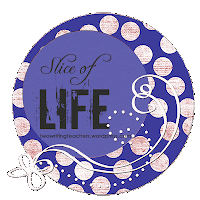I found this REPOST from a CNN article about Parent-teacher Conferences. It already seems to be hidden on the CNN site (at least I have not found it yet). BUt it's a good one - no matter what side of the dest you are on!
5 Tips for a Better Parent-Teacher Conference
 By Carl Azuz at CNN, posted on October 18, 2012
By Carl Azuz at CNN, posted on October 18, 2012
(CNN) - For many parents and teachers, it’s the first opportunity of the school year to sit down face to face and discuss everything from curriculum to issues that arise in the classroom. Here are some tips from both sides of the desk on how to make the most of a parent-teacher conference.
Do your homework
Talking to your child before the conference to find out if he has any questions or concerns of his own can give you ideas of what to address with the teacher. A good next step: having a physical list of questions.
The National PTA says that the “questions you ask during the conference can help you express your hopes for the student’s success in class and for the teacher.”
It’s an idea echoed by Ryan Koczot, an award-winning middle school teacher in North Carolina. “Parents should come to the conference prepared (notepad, pen, list of questions)—just like teachers should be prepared (information on the child, progress report, questions for the parent).” This will help get everyone on the same page.
Join forces
Several teachers have told us that the best results follow when parents and teachers work together. According to Debbie Geiger of Scholastic.com, “The goal of both the teacher and the parent should be the success of the student, but sometimes parents have a hard time discussing tough issues.”
Geiger suggests starting off by complimenting the teacher on something that he or she seems to be doing right—a piece of advice echoed by the National PTA. This can set a positive tone for the meeting and help foster cooperation later on.
If there’s a problem that has developed between your child and a particular subject or teacher, look for ways to address it together. “Be a team player,” suggests New Jersey middle school teacher Donna Spoto. “Let the teacher know that you are on his/her side.”
Open lines of communication
Divorce, remarriage, foreclosure, moving, a new baby: These are just a few of the personal issues that can affect a student’s behavior and work on campus.
A 7th grade social studies teacher in Tennessee said that one area where parents fall short is letting teachers know of problems in a student’s life outside of school. “When parents don’t tell us what’s happening, we can’t adjust accordingly.”
Spoto agrees that “stress and emotional issues definitely affect a student’s work.” By informing the teacher of possible causes, you will help the teacher better understand the child and be more equipped to appropriately instruct him.
Aim for action
Coming up with an action plan to address academic or behavioral concerns can benefit the parent, the teacher and the student long after the conference is over. The National PTA recommends establishing a series of steps that both you and the teacher agree on. A couple ideas to consider: what your short- and long-term plans are, and how you’ll measure progress.
One of the first actions you can take after the conference is going over key points and discussion topics with your child. “Depending on his age and maturity level, he may need help understanding what problems—and solutions—were covered. Most kids also want to have a clear idea of what’s expected of the teacher, the parent(s), and, most importantly, from [them],” writes Kristin Stanberry of Greatschools.org.
Keep in touch
Once an action plan is in place, try to determine how you’ll follow up with the teacher in the weeks and months ahead. Will it be through written notes, a phone call, or another conference? Koczot says that an email or phone contact at school can help the parent “check in on their child weekly or in a couple of weeks to see how they are doing.”
And it’s not a bad idea to inform your child that you’re keeping in touch with her school. “When a child knows parents and teachers are regularly working together, the child will see that education is a high priority requiring commitment and effort,” according to the National PTA.



 By Carl Azuz at CNN, posted on October 18, 2012
By Carl Azuz at CNN, posted on October 18, 2012






